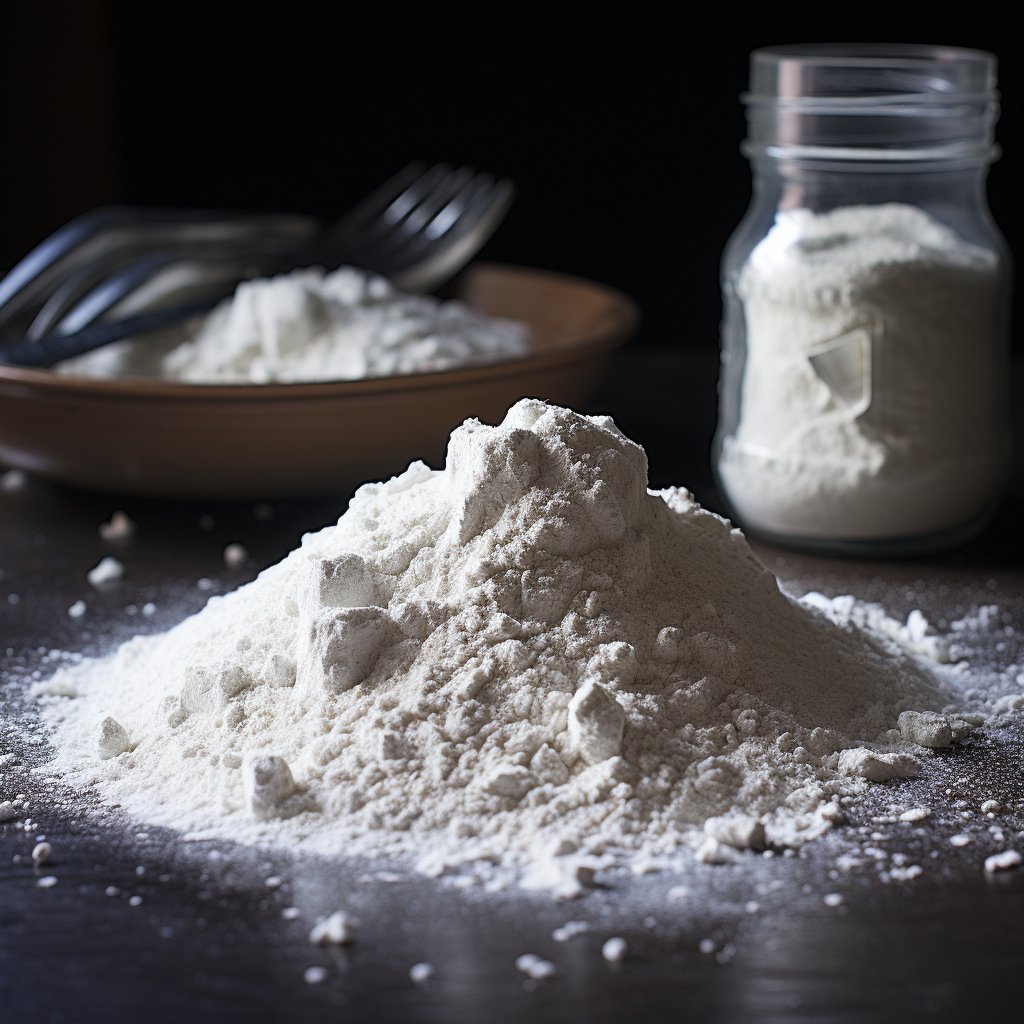When it comes to enhancing athletic performance and boosting muscle strength, creatine is a name that often rings a bell. Widely popular among athletes, bodybuilders, and fitness enthusiasts, this organic compound is commonly recognized for its role in quick energy production during high-intensity activities. But what if we told you that creatine has the potential for another, often overlooked, benefit—weight loss?
Yes, you heard it right. The conversation around creatine is evolving, and it's time to look at this powerhouse supplement through the lens of weight management. In this comprehensive guide, we're going to delve into the lesser-known aspects of creatine, debunk myths, and explore how you can leverage it for weight loss. Stick around, and you might just find the missing piece in your weight loss puzzle.
What is Creatine?
Creatine is a naturally occurring molecule found in small amounts in various foods and synthesized within the human body, primarily in the liver, kidneys, and pancreas. Comprising amino acids—arginine, glycine, and methionine—creatine plays a pivotal role in the rapid production of energy during high-intensity, short-duration activities. Think sprints, weightlifting, or any activity that demands a quick burst of energy; that's when creatine comes into play.
In a biological context, creatine is stored in muscles and later converted to creatine phosphate (or phosphocreatine), which aids in regenerating adenosine triphosphate (ATP), the body's main source of energy. The quicker this ATP regeneration, the better your muscles can perform during short, intense bursts of activity.
For those of you who have dug a little deeper into the world of creatine, you might be familiar with the term 'micronized creatine.' If not, make sure to check out our other blog post, "What is Micronized Creatine?", for a comprehensive look at this specialized form of creatine that offers enhanced solubility and absorption.
Common Myths About Creatine and Weight
When it comes to creatine, there's a sea of misinformation that can muddy the waters for those interested in supplementing their fitness routines. Let's take a moment to clear up some of the most prevalent myths.
The "Water Weight" FallacyOne of the most common myths surrounding creatine is that it only contributes to "water weight" gain. While it's true that creatine can increase water retention in muscle cells, this is not the same as merely gaining "water weight." Increased intracellular water can actually lead to greater protein synthesis, allowing your muscles to grow and recover more efficiently. It's a temporary condition and a natural part of the muscle growth process.
Creatine is Only for Muscle GainMany people assume that creatine's benefits are exclusively geared towards muscle gain and high-intensity activities. While creatine excels in these areas, it's far from being a one-trick pony. Creatine can also play a role in weight loss strategies, particularly when combined with a balanced diet and regular exercise.
By aiding in quick energy production, creatine can help you perform better during high-intensity interval training (HIIT) workouts, which are often recommended for weight loss. Improved performance can result in more calories burned during each session, thereby contributing to weight loss goals when combined with a calorie-deficient diet.
The Science Behind Creatine and Weight Loss
Science often dispels myths, and when it comes to creatine and weight loss, the evidence supports its utility far beyond muscle building.
Studies Supporting the Use of Creatine for Fat LossSeveral scientific studies have shown that creatine supplementation can actually aid in fat loss. For example, a study published in the Journal of Strength and Conditioning Research found that subjects who used creatine while participating in a resistance-training program lost more body fat than those who didn’t supplement with creatine.
Another study demonstrated that creatine led to an increase in the body's resting metabolic rate. The higher your resting metabolic rate, the more calories you burn at rest, which can be beneficial for weight loss when coupled with a calorie-deficient diet.
The Role of Creatine in Metabolism
Creatine plays an essential role in the production of ATP (adenosine triphosphate), which is the primary energy currency in the body. During short-duration, high-intensity activities, your body relies on ATP, and by extension, creatine, to fuel your muscles.
Interestingly, the process of ATP production and usage is inherently metabolic. It involves the conversion of stored energy (like fats and carbohydrates) into usable energy. By improving your body’s efficiency in high-intensity workouts, creatine allows for a more effective fat-burning process.
The takeaway here is that creatine isn't just for athletes looking to build muscle mass. When used correctly, creatine can be an effective tool for weight loss, boosting your metabolic rate and enhancing the fat-burning effects of high-intensity workouts.
How to Use Creatine for Weight Loss
Understanding how to use creatine effectively is vital, especially when your goal extends beyond muscle gain to weight loss. Here's how to go about it:
Recommended DosageThe commonly recommended dosage for creatine is 5 grams per day. However, some people opt for a "loading phase," where they take 20 grams per day for the first week and then lower the dose to 5 grams per day afterward. While the loading phase can saturate your muscles with creatine more quickly, it's not strictly necessary for weight loss benefits.
Another approach gaining traction is a low-dose regimen, where individuals take just 1 gram of creatine per day. This method appeals to those who are particularly cautious about potential side effects or who are just testing the waters. While the impact of a 1-gram dosage is likely to be less potent than higher doses, some people find it suits their needs just fine.
Timing (Pre-Workout, Post-Workout, etc.)
The timing of creatine supplementation is generally flexible. Some prefer taking it pre-workout to maximize performance and energy levels during training. Others opt for post-workout, capitalizing on the body's enhanced nutrient absorption capabilities. Either way, the most critical aspect is consistency. Make sure you're taking your creatine at the same time every day to maintain your muscle creatine stores.
Other Supplements or Diet Considerations-
Protein: A balanced diet rich in protein can support muscle repair and fat loss. Protein shakes or bars can complement creatine supplementation.
-
Carbohydrates: Some individuals mix their creatine with a simple carbohydrate drink to facilitate faster absorption. However, if you're focusing on weight loss, be mindful of the extra calories.
-
Caffeine: While caffeine is a popular pre-workout supplement, some studies suggest that it might interfere with creatine's effectiveness. If you're taking both, try to space them out to maximize benefits.
-
Hydration: Creatine pulls water into your muscles, so staying adequately hydrated is even more crucial when you're supplementing with it.
-
Micronized Creatine: If you're concerned about the quality of your creatine, consider micronized creatine, which is easier to absorb and can be less taxing on the digestive system. For more on this, check out our other blog post, "What is Micronized Creatine."
Testimonials
While the scientific evidence is essential, sometimes personal stories resonate more deeply. Here are some real-life examples and testimonials from individuals who have successfully incorporated creatine into their weight-loss journey.
Emily, 32 - Lost 15 Pounds in 3 Months"After reading about the potential benefits of creatine for weight loss, I was intrigued but skeptical. I started with a low 1g dose per day, then gradually increased to the recommended 5g. Not only did I see a noticeable difference in my gym performance, but I also began shedding pounds. Three months later, I was down 15 pounds!"
Mark, 45 - Improved Body Composition"I've been into fitness for years but was hitting a plateau. Incorporating creatine helped me break through it. My body composition improved significantly, and I managed to replace body fat with lean muscle. I didn't necessarily lose a lot of 'weight,' but I definitely lost fat."
Jennifer, 28 - An Athlete's Perspective"As a competitive sprinter, I used creatine mainly for muscle recovery and energy spikes. What I didn't expect was the natural reduction in body fat percentage. It was a welcome 'side effect,' and I’ve maintained a healthier weight since."
Andrew, 50 - Combining Creatine and Keto"I'd been on a ketogenic diet for a while but decided to add creatine to the mix. I continued to lose weight and had a lot more energy for my high-intensity workouts. I honestly didn't think creatine would make such a difference, but it did."
These testimonials are just a glimpse of how creatine can serve as a valuable addition to a weight loss regimen. Whether you're an athlete, a fitness enthusiast, or someone just getting started on their weight loss journey, creatine offers multi-faceted benefits that go beyond mere muscle gain.
Explore More
In summary, creatine is not just for athletes looking to boost their short-term energy and muscle gain. Scientific evidence and real-world testimonials both indicate that creatine can be a valuable supplement for weight loss. From its role in metabolism to its impact on workout performance, creatine offers a multi-dimensional approach to fat loss.
Final Recommendations:
- Start with a low dose to assess tolerance; some choose to start with as low as 1g per day.
- Pay attention to timing, such as taking creatine pre-workout for energy or post-workout for recovery.
- Always consult a healthcare provider for personalized advice, especially if you have existing medical conditions or are taking other supplements.
Ready to explore the benefits of creatine for weight loss? We invite you to check out our high-quality range of creatine products, each designed to support your unique fitness journey. If you have more questions or need personalized advice, don't hesitate to consult with a healthcare provider to create a plan tailored to your needs.

